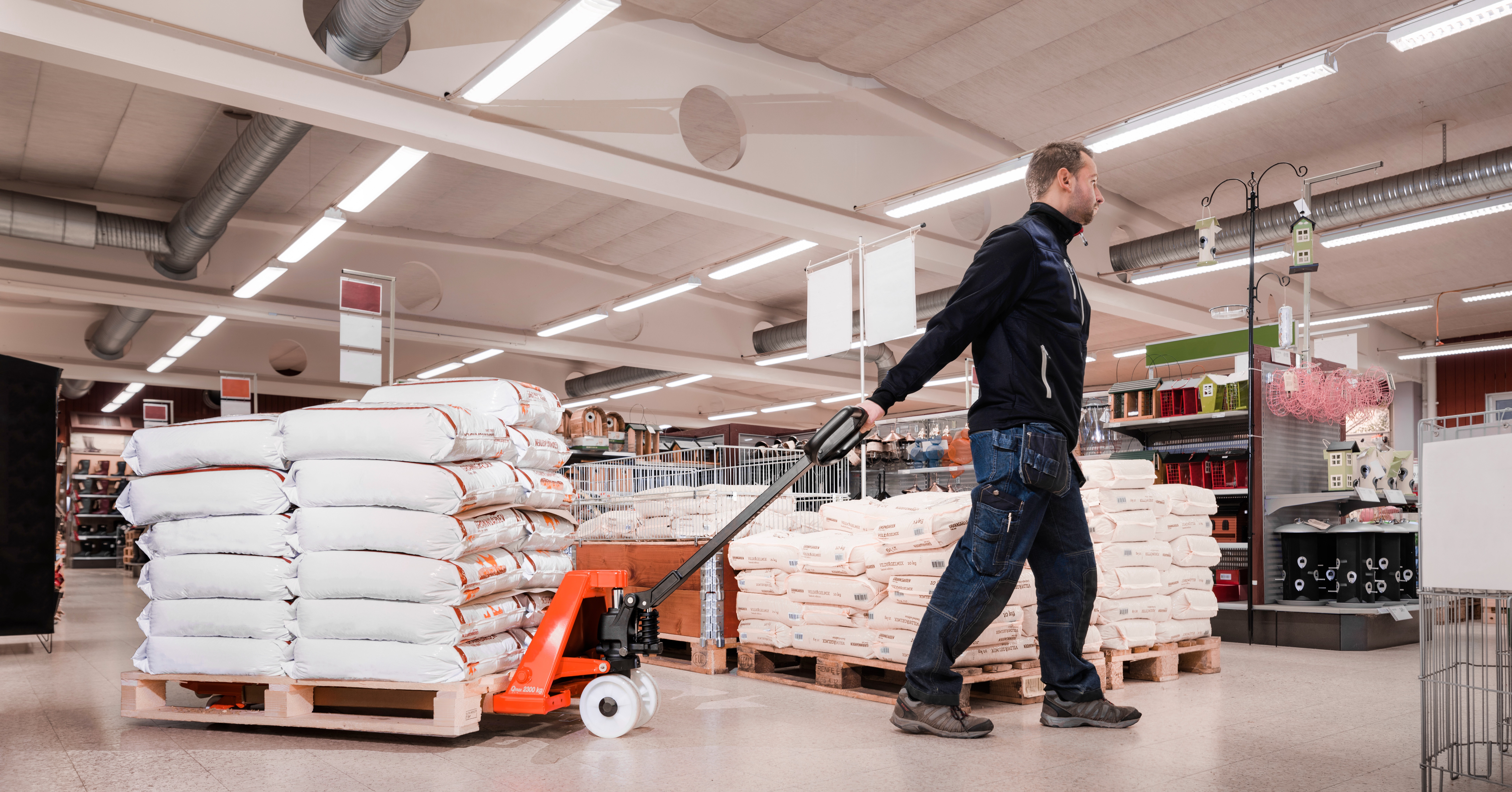LOLER stands for ‘Lifting Operations and Lifting Equipment Regulations’. Established in 1998 in the UK, these regulations impose duties on businesses that own, operate or control lifting equipment.
A common question is whether high lift pallet trucks fall under LOLER. Let’s explore this in detail.
Do pallet trucks come under LOLER?
Most pallet trucks do not fall under LOLER regulations in the UK. However, the one exception is high lift pallet trucks. These trucks are designed to lift pallets higher than other types of equipment, which introduces a higher level of risk in the workplace. Due to this increased risk, LOLER compliance is required for health and safety reasons.
In contrast, standard pallet trucks lift objects slightly off the ground and do not come under LOLER. Instead, they are governed by another set of regulations — PUWER (Provision and Use of Work Equipment Regulations).
What is PUWER and why does it apply to pallet trucks?
The Provision and Use of Work Equipment Regulations 1998 (PUWER 98) ensures all work equipment remains safe and functional. Under PUWER, employers must ensure regular inspections of all work equipment, including pallet trucks. This includes checking critical components such as:
- Overhead guards or cabs.
- Counterweights.
- Wheels and tyres.
- Brakes.
- Seat mountings.
- Steering wheels.
- Seat restraints.
- Traction systems.
Your business will need to comply with PUWER by arranging an inspection of all of the different parts of your truck mentioned above. This will ensure you meet key requirements:
- The equipment is suitable for the intended use.
- The equipment is safe for use and maintained safely.
- The equipment is used by people who receive proper training and information.
- Any equipment is paired with relevant health and safety measures.
An inspection should take place annually unless the manufacturer recommends something different. Other reasons you might want to run an inspection more frequently include:
- The pallet truck is used during every operation and the application is arduous.
- The pallet truck regularly operates under challenging conditions such as rain or cold.
Recently, the HSE changed its stance, so hand pallet trucks lifting 300mm or less now remain under PUWER, while those lifting above that height would be considered LOLER.
This is where it becomes a legal requirement to have your pallet truck examined—and these examinations must be carried out every 12 months at a minimum.
We can help you with this examination. Our dedicated technicians carry out Thorough Examinations for our customers.
We also offer an extensive range of pallet trucks, including high lift pallet trucks and powered pallet trucks. Both of these solutions can offer a range of benefits to your business:
- They are designed to offer maximum safety for operators.
- These solutions can perform in a range of applications and environments.
- If they are correctly maintained and serviced, they will require less frequent replacement and become a more sustainable and cost-effective option in the long run.
Start comparing your pallet truck options.
Whether or not you need hand pallet trucks, high lift pallet truck or powered pallet trucks will depend on your business and work environment. However, both are guaranteed to make your operation more efficient.
Discover your options and learn about the benefits of these solutions in more detail below.



